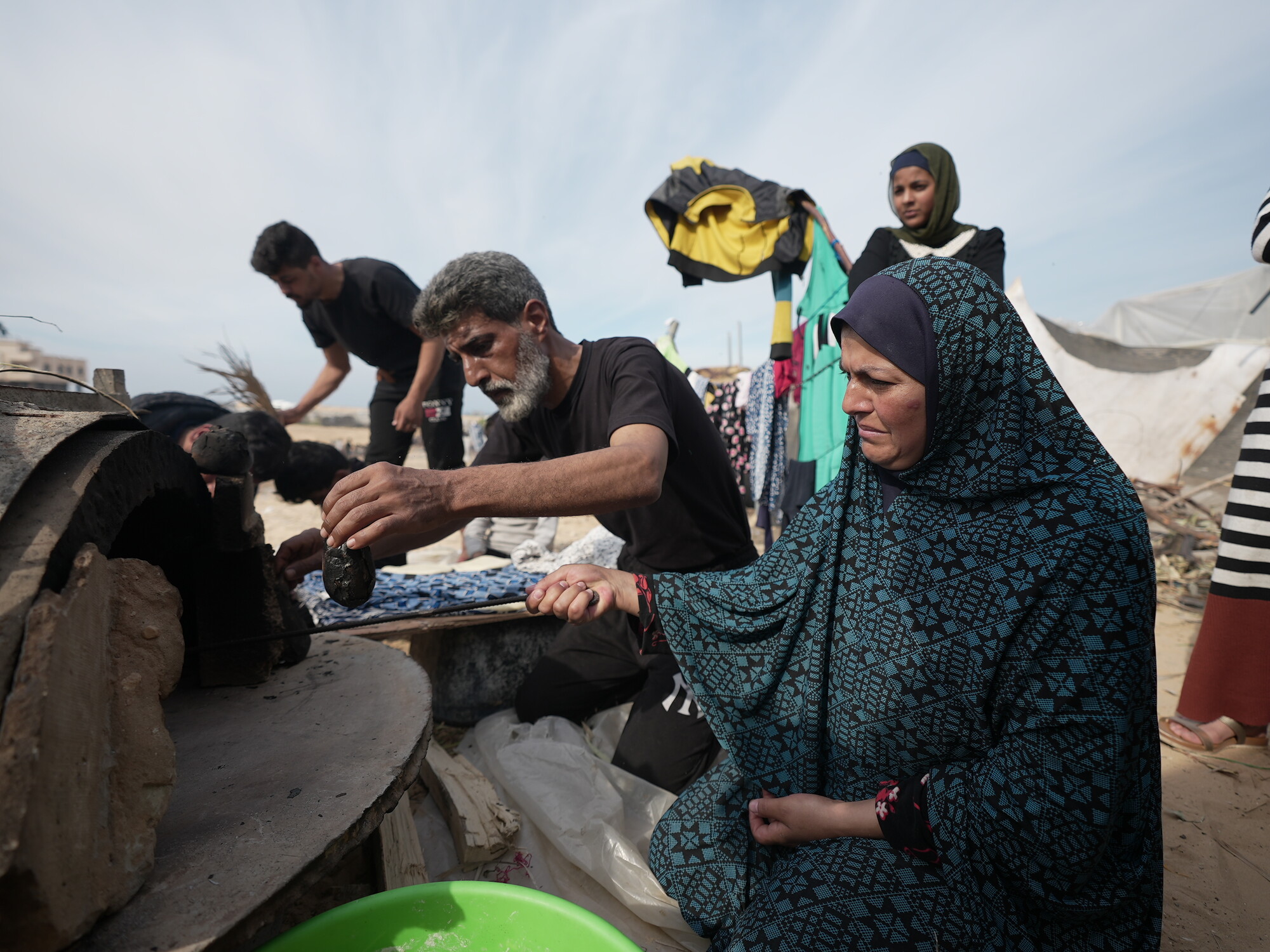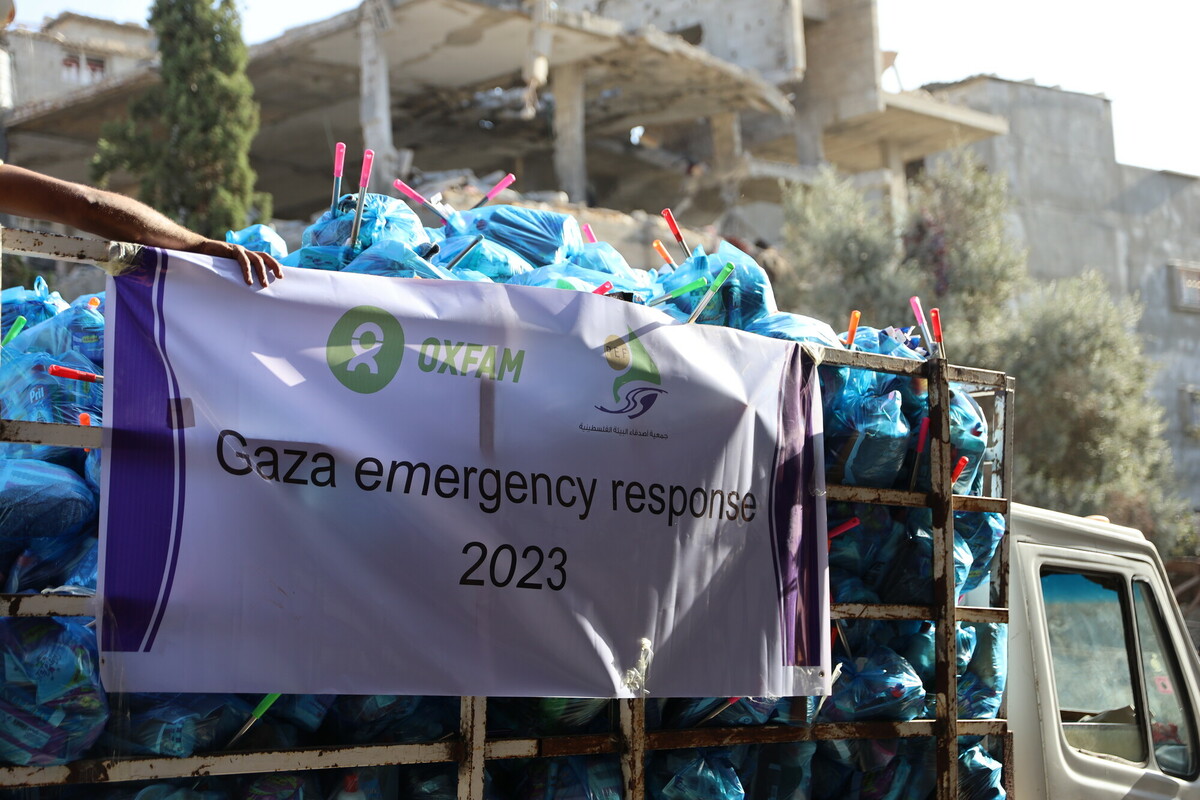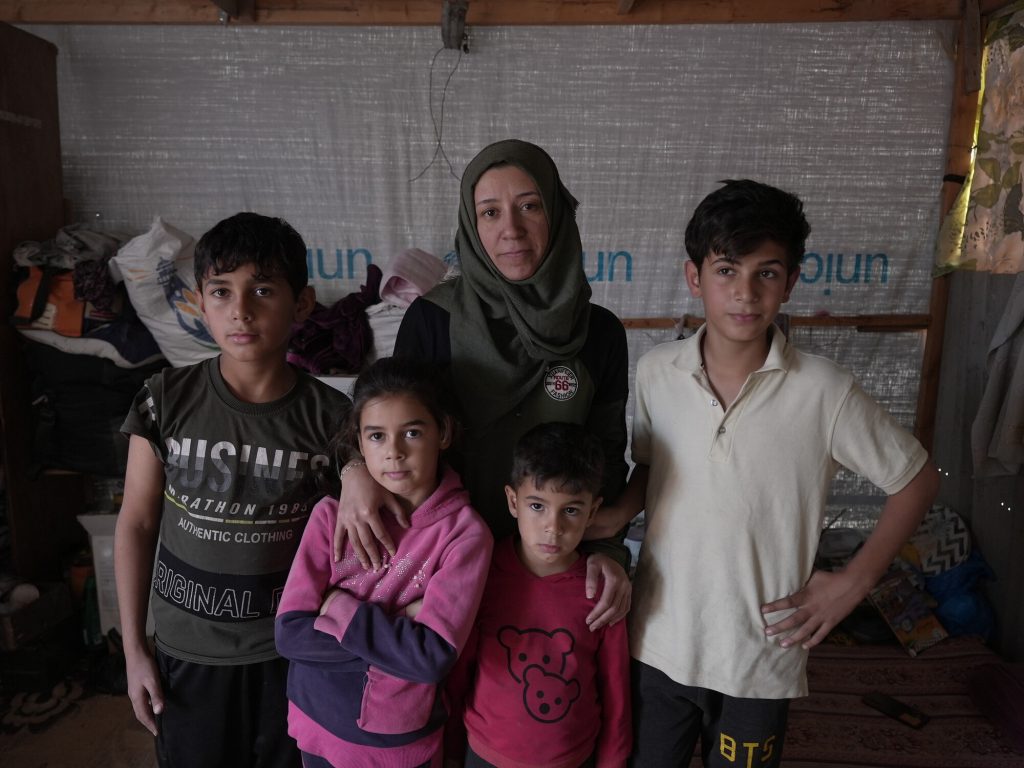100 Days of War in Gaza: Palestinians struggle to survive
Three months of armed conflict and a complete collapse of health and sanitation systems have created an ongoing humanitarian crisis in Gaza. More than 22,000 Palestinians in Gaza, the majority of whom are women and children, have been killed since October 7, 2023. Around 85 percent of the population is currently displaced, and nearly 2.3 million people lack consistent access to food and clean water.
In Israel, families continue to await the return of 136 hostages seized by Hamas on October 7. Oxfam does not work in Israel but is demanding their immediate and unconditional return.
Lack of proper sanitation, food, and other humanitarian assistance has created the conditions for famine in Gaza, and the risk is “increasing each day that the current situation of intense hostilities and restricted humanitarian access persists or worsens,” according to an analysis by the Integrated Food Security Phase Classification (IPC), which monitors food security.
The IPC analysis estimates that 90 percent of people in Gaza face “high levels of acute food insecurity, which represents the “highest share of people facing high levels of acute food insecurity that the IPC initiative has ever classified for any given area or country.”
“It is abhorrent and barely conceivable in 2023, that women, children and babies, the elderly and sick, the most vulnerable people have had their food weaponized against them. The horror felt by a mother unable to feed her child is the horror of Gaza today,” said Sally Abi Khalil, Oxfam’s Middle East and North Africa Regional Director.
Since the conflict in Israel and Gaza began in October 2023, Oxfam has been advocating for an end to the siege of Gaza, full humanitarian access, and the safe return of hostages. Oxfam staff in Canada have been urging the Canadian government to use its influence to achieve an immediate ceasefire to allow for the safe return of hostages to Israel, and for aid and commercial goods to enter Gaza so Oxfam and our partners can save lives.

Seeking shelter, food and sanitation
People caught in the conflict, including Oxfam staff based in Gaza, are sharing how difficult conditions are. “Each time an airstrike hits, I feel the ground shake beneath me,” one Oxfam staff member told colleagues in late December 2023. “Indiscriminate artillery shells are also dangerously close to us, and our house has been hit three times…. I constantly worry about the consequences if I were to be in the wrong place at the wrong time, fearing that I would be torn apart.”
Such dangers are pushing civilians into areas of southern Gaza where they are seeking shelter in schools and in tent cities--but they are still finding conditions to be dangerous. One young man in the Al-Mawasi section of western Khan Yunis put up a tent to shelter his extended family of 12 after they fled their destroyed home in the northern part of the Gaza Strip in November. “Good people helped,” he said, “and we supported each other.”
But he says Al-Mawasi is not safe, despite what displaced people are being told. He hears fighting nearby, and says the area has “no electricity, no clean water to drink.” All of his family members got sick with stomach flu and diarrhea the first two weeks they were in this camp. “Things are deteriorating in terms of both security and nutrition,” he says. “Without food, people will die of malnutrition before they die because of violence.”
Another man brought his family to Rafah in southern Gaza and says the sanitary conditions are terrible. “Life here is miserable; there’s no water, no hygiene,” he told Oxfam. “They installed communal bathrooms far away from here, and they were really dirty. So, I decided to build my own bathroom.”
Providing Aid in a War Zone
The ongoing conflict is making delivery of humanitarian assistance nearly impossible. The total siege and limited access to Gaza means very little food, medical aid, water, fuel, and other essentials are available.
Despite these challenges, Oxfam’s partners are assisting people in southern Gaza. With resources from Oxfam, they are distributing cash, locally sourced fruit and vegetables, winter clothing, blankets, hygiene items like soap, and menstrual products for women and girls. So far, Oxfam partners have reached 73,871 people since early October with humanitarian assistance despite the nearly impossible operating environment in Gaza.
Aid delivered by Oxfam partners in Gaza and West Bank
- 228 Families received cash
- 6,950 Fresh vegetable baskets
- 1,000 Food parcels
- 2,618 Family hygiene kits
- 500 Mother and new baby kits
- 1,100 Shelter items (including blankets & mattresses)
- 360 Winterization vouchers (for warm clothes)
- 61,270 Hot meals

Water and sanitation assistance
In the coming weeks, Oxfam and Palestinian Environment Friends (PEF) are taking steps to address the lack of water and sanitation systems in Gaza by installing wells and water treatment units to make the salty ground water in Gaza drinkable for families. They will also install water storage bladders and transport water by truck along with foldable water storage containers. The plans include building and installing 200 toilets, 128 handwashing stations, and 67 showers, complete with lighting and door-locking systems and grab rails to provide security and support for persons with additional needs. Oxfam and PEF will also distribute foldable commodes and bedpans for people living with disabilities.
Finally, we’ll continue to provide displaced people with emergency hygiene kits. The initiative intends to reach 25,600 people between January and March 2024 and will cost $2 million.
Deadliest conflict in the 21st century
Earlier this week, our Director of International Programs, Erin Kiley, spoke to CTV News about the dire situation faced by Palestinians in Gaza. As reported by Oxfam, Israel’s military is killing Palestinians at an average rate of 250 people a day which exceeds the daily death toll of any other major conflict of recent years. While having to deal with constant bombardment, civilians are now facing at risk of starvation, disease and cold-related illnesses. Erin explains, "what really needs to happen now is to get food and clean water into people, because there are so many people on the cusp of starvation at the very moment, and there's real risk of famine. And right now, the reports on food security show the largest percentage of people food insecure since these kind of measurements have happened in a country,".
Call for immediate ceasefire
Oxfam continues to work with allies and partners to urge all parties to the conflict in Gaza to stop the fighting that is precipitating the humanitarian crisis.
Lauren Ravon, Oxfam Canada's Executive director, said that “after weeks of watching the devastation and violence in Gaza and witnessing tens of thousands of deaths, we are finally seeing a shift in Canada’s position. Millions of people in Canada have been waiting for this moment following weeks of rallies across the country. We are pleased the government heeded these calls. We now need to see this resolution turned into reality so that humanitarian organizations including Oxfam Canada can finally mount the kind of humanitarian response needed. Our teams stand ready to scale up our response and address the urgent needs of the entire 2.3 million people in Gaza.”

